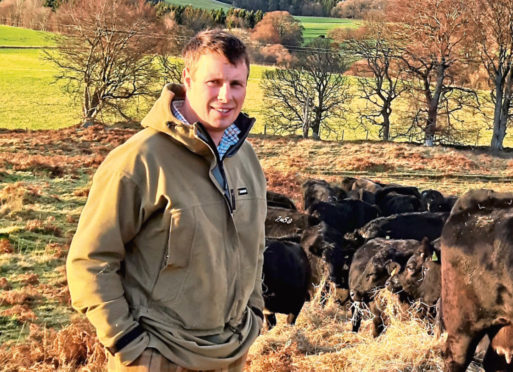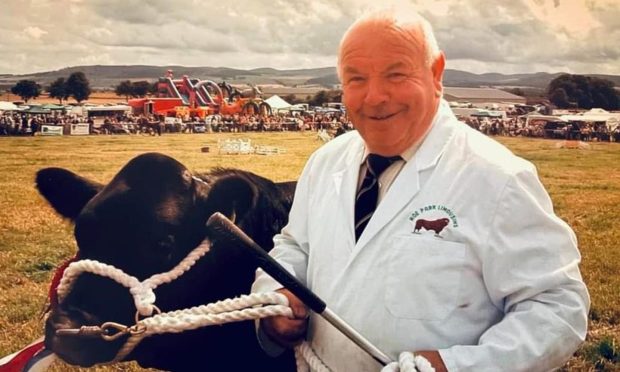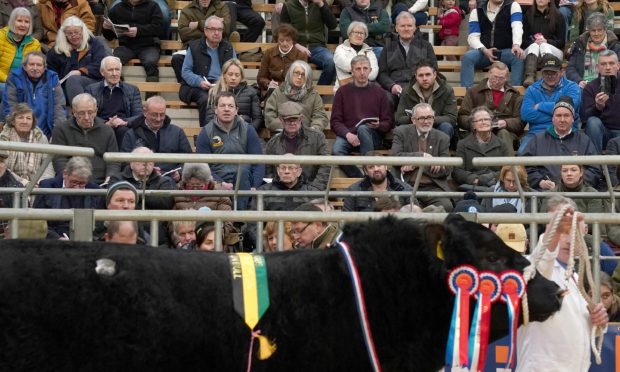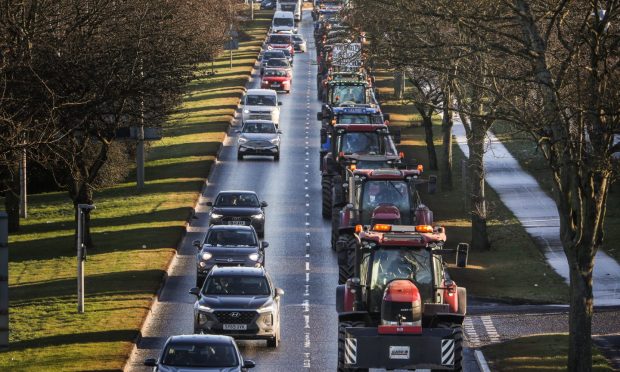The hills on Alex Brewster’s farm make it ideally suited to getting cattle involved in some self-service winter feed – and achieving his long-term grassland objectives at the same time.
The Nuffield Scholar from Rottmell Farm, near Ballinluig, will be speaking in the Inspirational Leaders session at next week’s Oxford Farming Conference, largely because of his passion for building ecologically-sustainable grazing and building resilience into his land.
He believes taking action at the grass roots is key to the industry’s future.
“Location and environment is what we have here,” he says.
“Globally, we have some fairly big challenges and red meat has had the kitchen sink thrown at it. How we manage that has to change.
“But red meat and herbivores were around millions of years ago, they’ve always interacted with the land.
“I, as a land user, have to understand how that interaction works and model my business management to enhance that natural working relationship between the living soil and the herbivore above it. And we’re getting there.”
To demonstrate, he drives a tractor up the hill behind the farm with a bale of hay. As soon as it’s dropped, the 30 Aberdeen-Angus cows quickly roll and chase it down the steep bracken-covered slope – and it is this trampling action from the 120 hooves that gives him satisfaction.
“We’re using the simple interaction between the natural environment and the red meat that we grow above it,” he said.
“Animals are great tools, they’re suited to this landscape and environment and all I’m trying to do is grab as much energy from photosynthesis as we can.
“We’re pulling it out of the soils, growing as much grass as we can and creating diverse swards and pastures under cattle’s feet.
“I only feed them 50% of what they need in a day, the rest they get from grass. And we get the cow pats back on the ground to create the nutrient cycle.”
He has subdivided all the farm’s improved pasture and has created 48 paddocks where before there were 18 fields, which he says has enabled him to double grassland production.
“We only had to start feeding conserved forage to the cows at the end of December,” he says.
“Four years ago we were feeding from October.”
nnicolson@thecourier.co.uk










